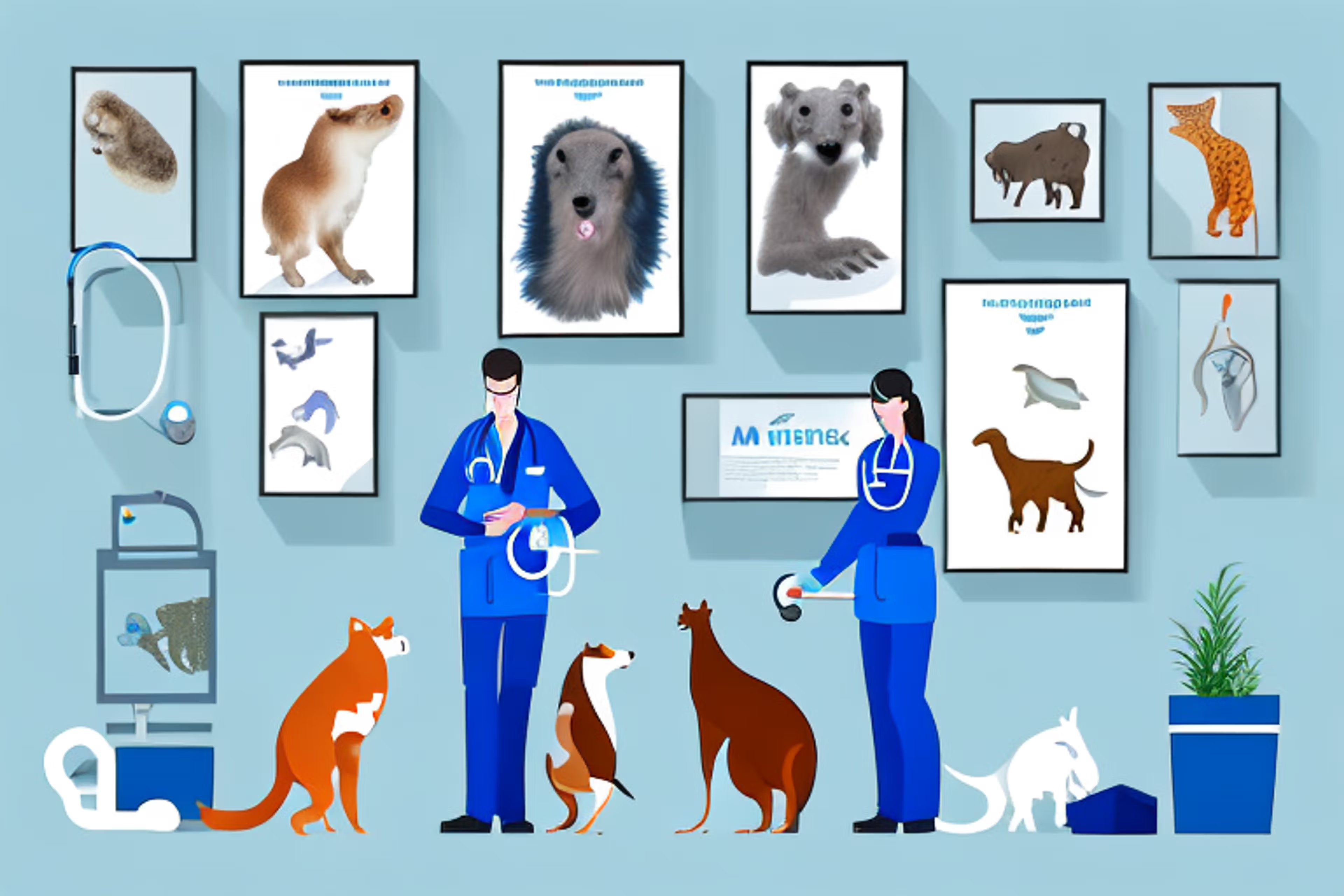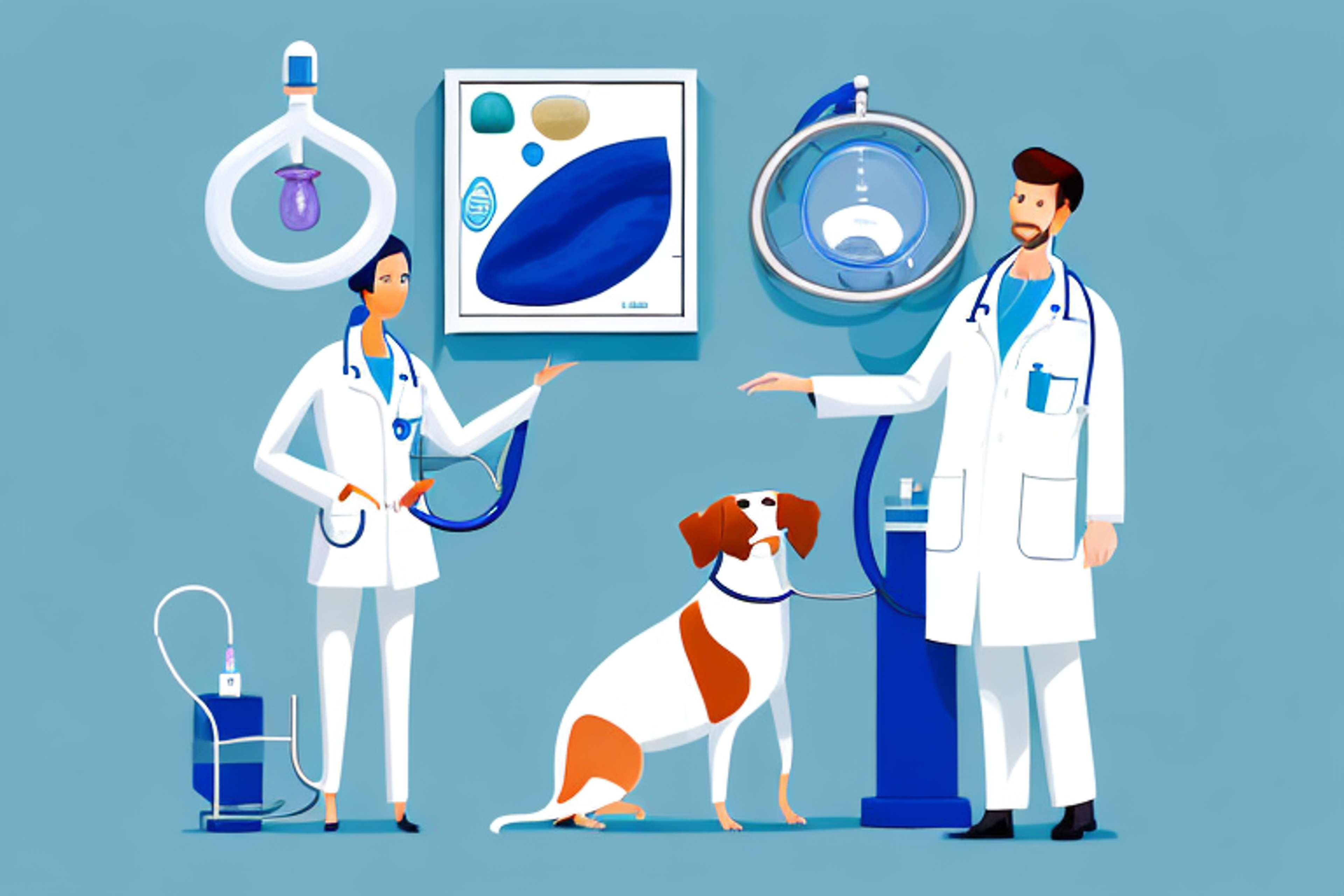Colleges with Veterinary Medicine: Your Guide to the Best Programs in the Country
Explore the top colleges with veterinary medicine programs in the country with our comprehensive guide.
Posted March 6, 2025

Table of Contents
If you love animals and are passionate about their health and welfare, then pursuing a degree in veterinary medicine is the perfect career choice for you. But with numerous colleges offering veterinary medicine programs, it can be challenging to find the best one where you can hone your skills and knowledge. In this comprehensive guide, we'll examine the top colleges with veterinary medicine programs in the United States to help you make an informed decision.
Why Pursue Veterinary Medicine?
Veterinary medicine is a rewarding career that allows you to make a significant difference in the lives of animals and their owners. As a veterinarian, you'll be responsible for diagnosing, treating, and preventing diseases and injuries in animals. Veterinary medicine also offers various career paths, such as working in private practices, animal hospitals, zoos, research laboratories, and government agencies.
Moreover, pursuing veterinary medicine can also lead to opportunities for research and innovation in the field. As a veterinarian, you can contribute to the development of new treatments and technologies that can improve the health and well-being of animals. Additionally, the field of veterinary medicine is constantly evolving, which means that there is always something new to learn and discover.
How to Choose the Right Veterinary Medicine Program
When selecting a veterinary medicine program, there are several factors you should consider. These include the program's reputation, accreditation status, faculty, curriculum, research opportunities, clinical experience, and job placement rate. It's also essential to take into account your location, financial situation, and personal needs.
One important factor to consider when choosing a veterinary medicine program is the type of animals you want to work with. Some programs may focus more on small animals, such as cats and dogs, while others may have a stronger emphasis on large animals, such as horses and cows. It's important to choose a program that aligns with your interests and career goals.
Another factor to consider is the program's facilities and resources. Look for programs that have state-of-the-art equipment and technology, as well as ample opportunities for hands-on learning. This can include access to animal hospitals, research labs, and fieldwork experiences.
Top 10 Veterinary Medicine Programs in the United States
According to The U.S. News & World Report, the top 10 colleges with veterinary medicine programs in the United States as of 2021 are:
- University of California – Davis
- Cornell University
- Colorado State University
- North Carolina State University
- Ohio State University
- University of Pennsylvania
- University of Wisconsin-Madison
- University of Florida
- Michigan State University
- University of Georgia
These top 10 veterinary medicine programs offer a wide range of specialties, including small animal medicine, large animal medicine, and exotic animal medicine. Students in these programs have access to state-of-the-art facilities and equipment, as well as opportunities for hands-on experience through internships and externships. Graduates of these programs are highly sought after in the veterinary field and have a strong track record of success in their careers.
Ranking Criteria for Veterinary Medicine Programs
The ranking criteria used by The U.S. News & World Report to assess veterinary medicine programs include research activity, faculty resources, student selectivity, the ratio of faculty to students, and reputational surveys among academics and practitioners in the field.
Research activity is a crucial factor in determining the ranking of veterinary medicine programs. The U.S. News & World Report evaluates the amount and quality of research conducted by faculty and students in the program. Programs with a higher level of research activity are considered to be more innovative and have a greater impact on the field of veterinary medicine.
Another important factor in the ranking of veterinary medicine programs is the quality of faculty resources. This includes the number of faculty members, their level of expertise, and their research productivity. Programs with a higher number of experienced and productive faculty members are considered to be more competitive and offer a better learning experience for students.
The Importance of Accreditation in Veterinary Medicine Programs
Attending an accredited veterinary medicine program ensures that you receive a high-quality education that meets the industry standards and prepares you for your licensure exam. The Accreditation Council for Veterinary Medical Education (ACVME) is the primary accrediting organization for veterinary medicine programs in the United States.
Accreditation also plays a crucial role in ensuring that veterinary medicine programs stay up-to-date with the latest advancements in the field. Accredited programs are required to regularly review and update their curriculum to reflect changes in the industry and to incorporate new research findings. This ensures that graduates are equipped with the most current knowledge and skills needed to provide the best possible care for animals.
The Cost of Pursuing a Degree in Veterinary Medicine
Studying veterinary medicine can be expensive, with tuition fees ranging from $20,000 to $60,000 annually, depending on the institution. Additionally, students must factor in the cost of living expenses, textbooks, and equipment. However, many colleges offer financial aid, scholarships, and loan programs to ease the financial burden.
It is important to note that pursuing a degree in veterinary medicine also requires a significant amount of time and dedication. The program typically takes four years to complete, and students must complete clinical rotations and gain hands-on experience working with animals. This can be challenging, but it is necessary to prepare students for the demands of the profession.
Scholarship Opportunities for Veterinary Medicine Students
Several organizations provide financial assistance for students pursuing a degree in veterinary medicine, such as the American Veterinary Medical Foundation, the American Kennel Club, the National Association of Veterinary Technicians, and the Morris Animal Foundation. It's also advisable to check with your institution's financial aid office for available scholarships and grants.
In addition to these organizations, many veterinary pharmaceutical companies also offer scholarships and grants for students pursuing a degree in veterinary medicine. Some examples include Zoetis, Merck Animal Health, and Boehringer Ingelheim. These companies often have specific requirements or areas of focus for their scholarships, so be sure to research each opportunity thoroughly.
The Curriculum of a Typical Veterinary Medicine Program
While each institution may have slight variations in their veterinary medicine programs, a typical curriculum focuses on courses in anatomy, physiology, pharmacology, microbiology, pathology, and animal behavior. Students also participate in practical training and clinical rotations to enhance their skills in diagnosing and treating animal diseases and injuries.
Additionally, veterinary medicine programs often include courses in public health, epidemiology, and food safety to prepare students for careers in areas such as food animal medicine and public health. Students may also have the opportunity to specialize in areas such as surgery, dentistry, or oncology through elective courses and advanced training programs.
Clinical Experience Requirements for Veterinary Medicine Students
To obtain a license as a veterinarian, students must complete a certain number of clinical hours under the supervision of a licensed veterinarian. The ACVME requires a minimum of 1,000 hours for veterinary medicine graduates, with some states having additional requirements.
These clinical hours are typically completed during the final year of the veterinary medicine program, where students gain hands-on experience in diagnosing and treating animals. The clinical experience also provides students with the opportunity to work with a variety of animal species, including dogs, cats, horses, and livestock.
In addition to the required clinical hours, many veterinary medicine programs offer elective rotations in specialized areas such as surgery, emergency medicine, and oncology. These rotations allow students to gain additional experience in their areas of interest and can be beneficial when applying for post-graduate positions or internships.
Research Opportunities in Veterinary Medicine Programs
Many colleges with veterinary medicine programs offer research opportunities for students interested in pursuing careers in veterinary research. Students can engage in research projects in areas such as animal nutrition, genetics, virology, and immunology to advance veterinary knowledge.
Career Paths for Graduates of Veterinary Medicine Programs
With a degree in veterinary medicine, graduates can pursue several career paths, such as working in private practices, animal hospitals, government agencies, research laboratories, and zoos. They can specialize in areas such as surgery, internal medicine, dentistry, neurology, oncology, and ophthalmology. Some veterinarians opt for teaching or management positions.
Job Outlook and Salary Expectations for Veterinarians
According to the U.S. Bureau of Labor Statistics, the demand for veterinarians is expected to grow 16% from 2019 to 2029, faster than the average for all occupations. The median annual wage for veterinarians in 2020 was $98,230, with the highest 10% earning more than $166,960.
Advancements in Technology and Treatments in the Field of Veterinary Medicine
The field of veterinary medicine is constantly evolving, with new technologies and treatments being developed to improve animal health and welfare. Some advancements include telemedicine, laser therapy, genomic testing, and regenerative medicine.
Challenges Facing the Field of Veterinary Medicine Today
While veterinary medicine is a fulfilling career, there are several challenges facing the industry today. These include the high cost of veterinary care, the shortage of veterinary professionals in rural areas, the risk of animal diseases, and the emotional toll of dealing with the loss of beloved pets.
In conclusion, pursuing a degree in veterinary medicine is an excellent choice for animal lovers who want to make a difference in the world. By attending a top-ranked veterinary medicine program, you can receive a high-quality education that prepares you for a fulfilling career in the field. Make sure to consider the key factors when selecting a program and take advantage of the available financial aid and scholarship opportunities. With dedication and hard work, you can become a successful and compassionate veterinarian.











